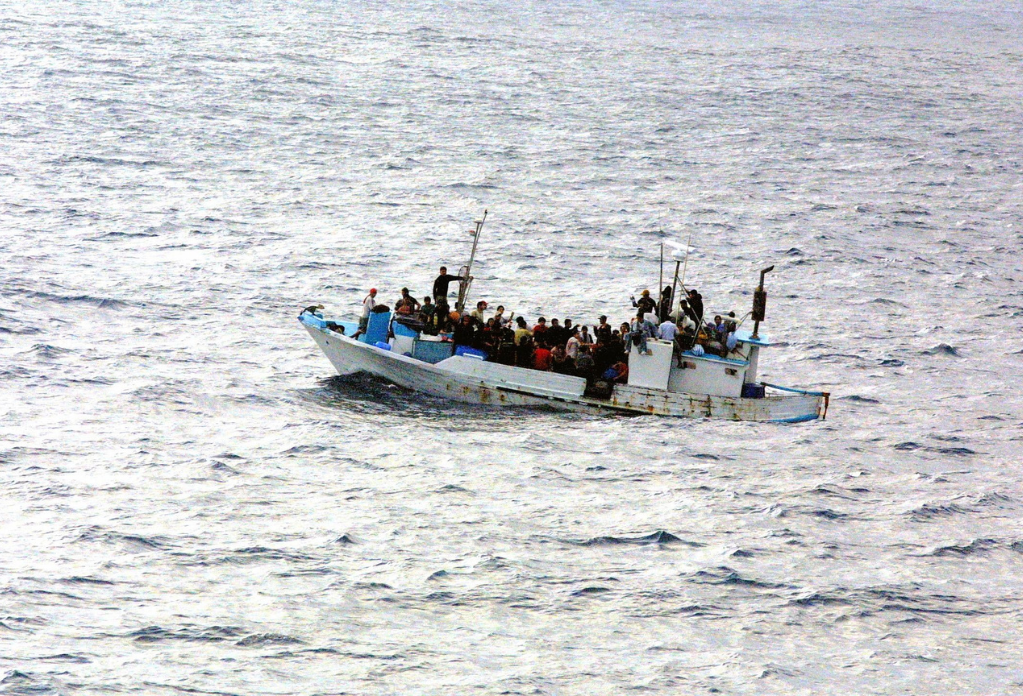
Unseen wants to see an end to vulnerable people risking their lives making dangerous journeys across the English Channel, but the Illegal Migration Act is not the way to do it.
This law bans support for some victims of modern slavery and will only cause more suffering.
Unseen believes the Illegal Migration Act is inhumane and does not recognise people’s human rights. We think it should be scrapped in its entirety.
Here are 7 reasons why Unseen rejects the Illegal Migration Act.
1) The Act bans support for some victims of modern slavery
Under the new rules, genuine victims of human trafficking arriving in small boats, or by any other “irregular” means, are not allowed to enter the National Referral Mechanism (NRM), which is the Government’s system to identify, support and protect victims of human trafficking and modern slavery.
2) The Illegal Migration Act could trap countless victims of modern slavery and human trafficking in indefinite exploitation
Victims worried about their asylum status could be forced underground, where they could continue to be exploited.
Traffickers will have more leverage over their victims as they can threaten to report them to the authorities, where they will be deported.
3) The Act treats victims of human trafficking and modern slavery as criminals
Modern slavery is a crime; being a victim of modern slavery is not.
The law is an effective green light for traffickers to carry on doing what they are doing, as it focuses on the victims of trafficking and not the perpetrators.
4) The Illegal Migration Act blocks people challenging wrongful decisions in the courts
This is a worrying precedent for the rule of law and our fundamental human rights.
5) Genuine victims of trafficking and modern slavery could be held in immigration detention or unsuitable accommodation for years
The Illegal Migration Act 2023 puts a duty on the Home Secretary to remove everyone that arrived in the UK irregularly, including victims of human trafficking and modern slavery.
However, this is only possible if the UK has a returns agreement with another country or a safe third-country agreement.
So far, the UK Government has a returns agreement with only Albania, Georgia, Nigeria, India, Pakistan and Serbia, and has only managed to reach a third-country agreement with Rwanda.
The Home Secretary now has the power to detain people for 28 days (or more), meaning that the Government could detain thousands of vulnerable people.
This policy is only going to cost the taxpayer more. The annual financial cost of operating the UK’s detention system for the year ending March 2022 was around £94 million.
And what of the human cost? Unseen believes that no human trafficking victim should be held in immigration detention.
6) Massive abuse of the system is a myth
The Government says there is a “massive abuse” of the modern slavery system by people arriving in the UK by “irregular” means, such as small boats crossing the Channel. This is simply untrue.
Only 6% of people that travelled across the channel in a small boat in 2022 claimed they were victims of modern slavery (or were referred as victims of modern slavery).
7) The overwhelming majority who arrive across the Channel by boat and say they are victims of human trafficking are considered to have a legitimate claim by the Government’s own processes
85% of the 6% of people arriving in small boats in 2022 who were identified as potential victims of modern slavery received positive reasonable grounds decisions.
This means the Home Office decision-maker believes that a person is a victim of modern slavery.
The difference between trafficking and people smuggling
It is not helpful that some politicians and journalists deliberately conflate human trafficking and people smuggling.
Confusing these two very different things makes it easier to get the public to accept changes to the law that will harm victims of modern slavery.
Human trafficking is a crime against the individual. It is a form of modern slavery, with traffickers using force, coercion, or deception to trick people into exploitation and the movement does not need to be across an international border – it can be across a street.
Smuggling, facilitated by criminal gangs, is something entirely different. It is a crime against the state – paying someone to move an individual illegally across an international border.
What you can do
Want to do more to stop modern slavery and help the victims of trafficking? Check out the many ways you can get involved with Unseen.
This is an updated version of an article first published in March 2023


